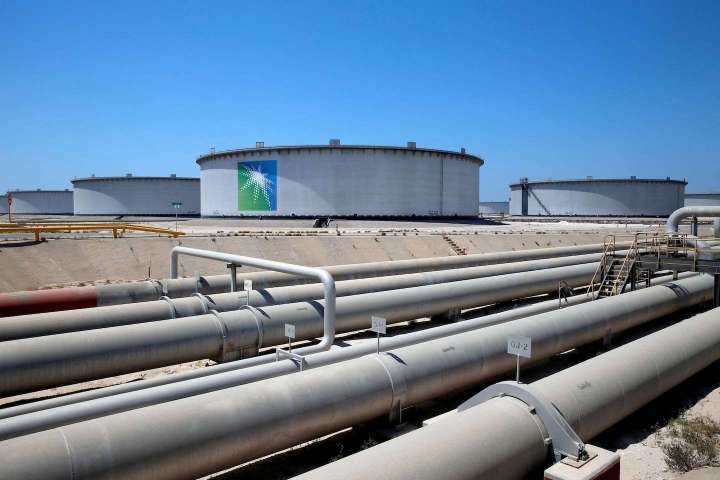The OPEC Plus group of oil-producing nations plans to increase production by a scant 100,000 barrels daily, a move that is unlikely to have a major effect on U.S. gas prices despite the considerable political capital that President Biden expended to push the consortium in that direction.
OPEC Plus minimally boosts production after Biden’s Saudi visit

Energy analysts say promises of a slight increase in output by the consortium are more a diplomatic move than an economic one that would have a noticeable impact on world oil markets. The nations of OPEC Plus already were failing to meet their production quotas leading up to Wednesday’s announcement, and there is doubt that the group will deliver on all the oil promised.
The news that OPEC Plus would pursue only a scant boost in production reversed a decline in oil prices Wednesday morning, pushing them back up more than 1 percent.
Reports that OPEC+ agreed to a 100,000 barrel per day hike. Putting that into context, that’s enough oil to feed one BP Whiting, Indiana refinery oil for about 6 hours. Your odds are greater at winning the Mega Millions than seeing a drop of that additional oil.
— Patrick De Haan ⛽️📊 (@GasBuddyGuy) August 3, 2022
“Having borne the political cost of a trip to the Saudi kingdom, getting nothing back would be a slap” for Biden, said Kevin Book, the managing director at ClearView Energy Partners, a research firm.
“But a headline saying OPEC Plus is going to increase production is not the same as it bringing actual barrels to market,” he said.
Gas prices have fallen amid an uncertain economic outlook and continued coronavirus-related shutdowns in China. The national average price of gasoline dropped to $4.16 on Wednesday, according to AAA. Gas prices have fallen for seven weeks.
But prices at the pump still remain sharply higher than at this time last year, and Biden has put oil companies on notice that they may be targeted with government intervention if they continue to reap record profits from the higher prices. The latest round of earnings reports showed the high prices are creating multibillion-dollar windfalls for oil companies while motorists suffer.
The actions Biden has taken so far to bring down prices, including the release of tens of millions of barrels from the Strategic Petroleum Reserve, have largely had a negligible impact. Industry analysts are skeptical of an administration finding that concluded that the release from the reserve shaved as much as 40 cents off the price of gas.
Saudi Arabia, the leader of OPEC Plus, is reluctant to increase output sharply as it balances its aspirations for improved relations with the United States with its desire to remain in good standing with Russia, a member of OPEC Plus.
“They have been focused with trying to keep their ties with Russia strong,” Book said. “Russia gets a lot of leverage from high barrel prices. The Kremlin is probably not enthusiastic about the kingdom making any big step up.”
There are also questions about whether Saudi Arabia or any other OPEC Plus nation has much more oil to offer. Some analysts speculate that the kingdom and its partners have extremely limited spare production capacity after ramping up their output in recent months.
The consortium said supply concerns factored into its decision to limit its increase in output. “The severely limited availability of excess capacity necessitates utilizing it with great caution in response to severe supply disruptions,” the group’s statement said.






